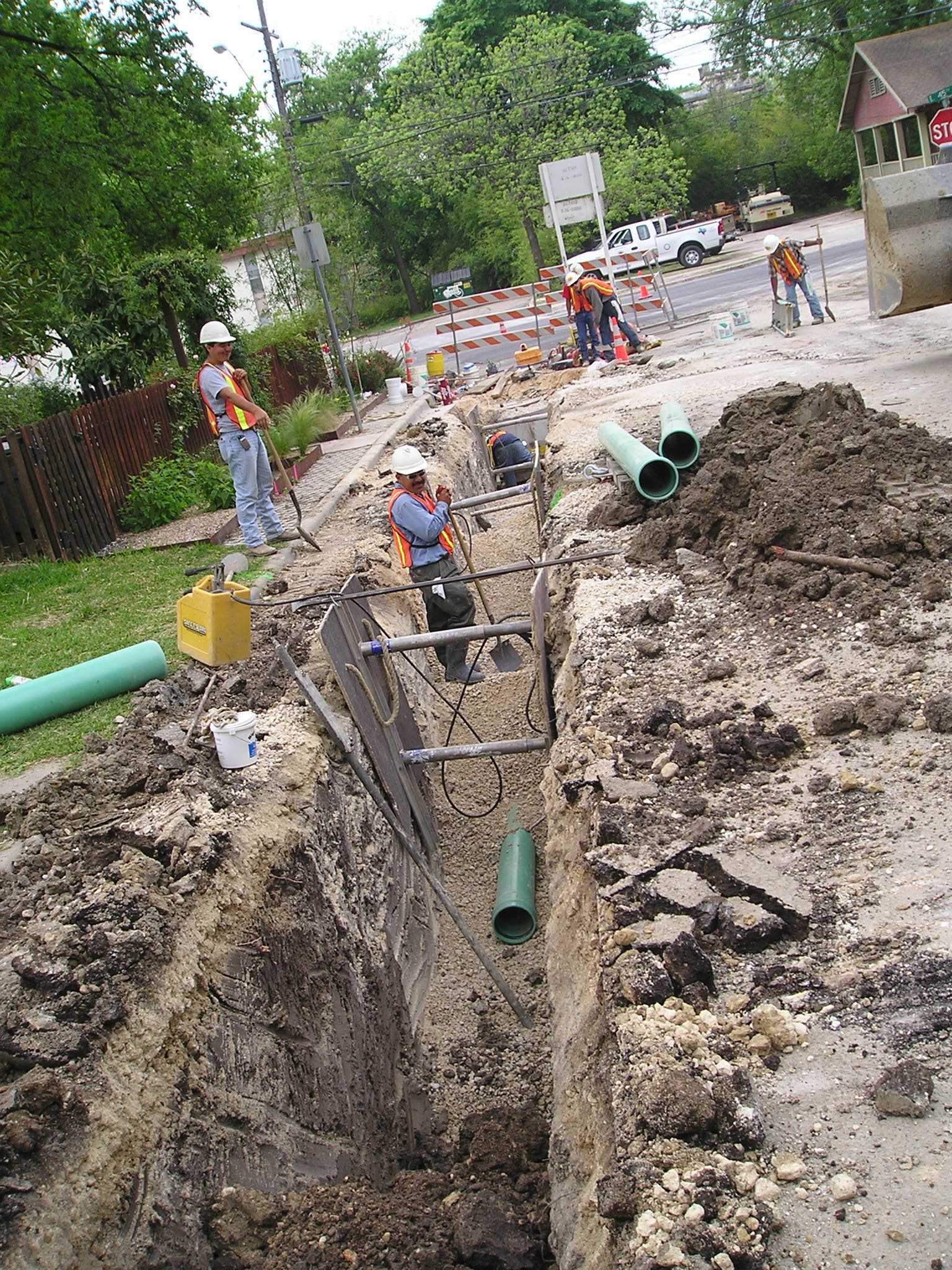Austin Clean Water Program
Austin, TX
Austin Clean Water Program | Austin, TX
The ACWP has been a successful collaborative effort between City of Austin and private consultant staff . This massive program’s goal was to address an EPA-issued Administrative Order by removing all potential sewage overflows. Earth Tech was hired to serve as the program management consultant to provide support to the City of Austin for the planning, design and construction management of new and rehabilitated wastewater collection facilities.
Over 100 separate projects were identified for design and construction. Approximately 78 miles of new sewers and five standalone tunnels were completed, including:
- Shoal Creek Tunnel (3,363 feet of 8-foot tunnel w/HOBAS carrier)
- Little Walnut South Tunnel (9,487 feet of 8-foot tunnel w/ HOBAS carrier)
- Barton Creek Lift Station Relief Tunnel Sections 1 and 2 (3,504 feet of 8-foot tunnel w/HOBAS carrier)
- Harpers Branch Tunnel (2,209 feet of 5-foot tunnel w/HOBAS carrier)
- Thirty-one other contracts included both tunneling (hand and machine) and trenchless technology (HDD and jack-and-bore) applications.
Program Cost: $400M
Owner: City of Austin
As a result of ACWP, the volume of sewer overflows dropped from 13,000,000 gallons in 2002 to 350,000 in 2008; with an accompanying significant drop in peak flows to the wastewater treatment plants. Final CIP construction effort was $267 million of a $400 million overall program budget, with all projects completed at an overall change order rate of 4.6% (split 50% for actual change and 50% Owner-directed change).
CAS, as a subconsultant to Earth Tech, provided highly-trained professional staff to fill key roles in overall management of the Program; which included: SSES review; technical memorandum preparation; support to issuance of permits (City of Austin, Travis County, State of Texas, USACE); preparation and administration of City contract documents and document control; preparation and negotiation of design phase scope of services; design management; construction management; preparation and validation of cost estimates; constructibility review; value engineering; project controls; schedule preparation and analysis; cash flow analysis; RFI management and response; project observation; change order and claim analysis, negotiation, and closure; tracking WBE/MBE participation; issues interpretation and problem solving; market analysis and bid strategy; quality control; reporting schedule and budget performance data to the city manager, and close out.


